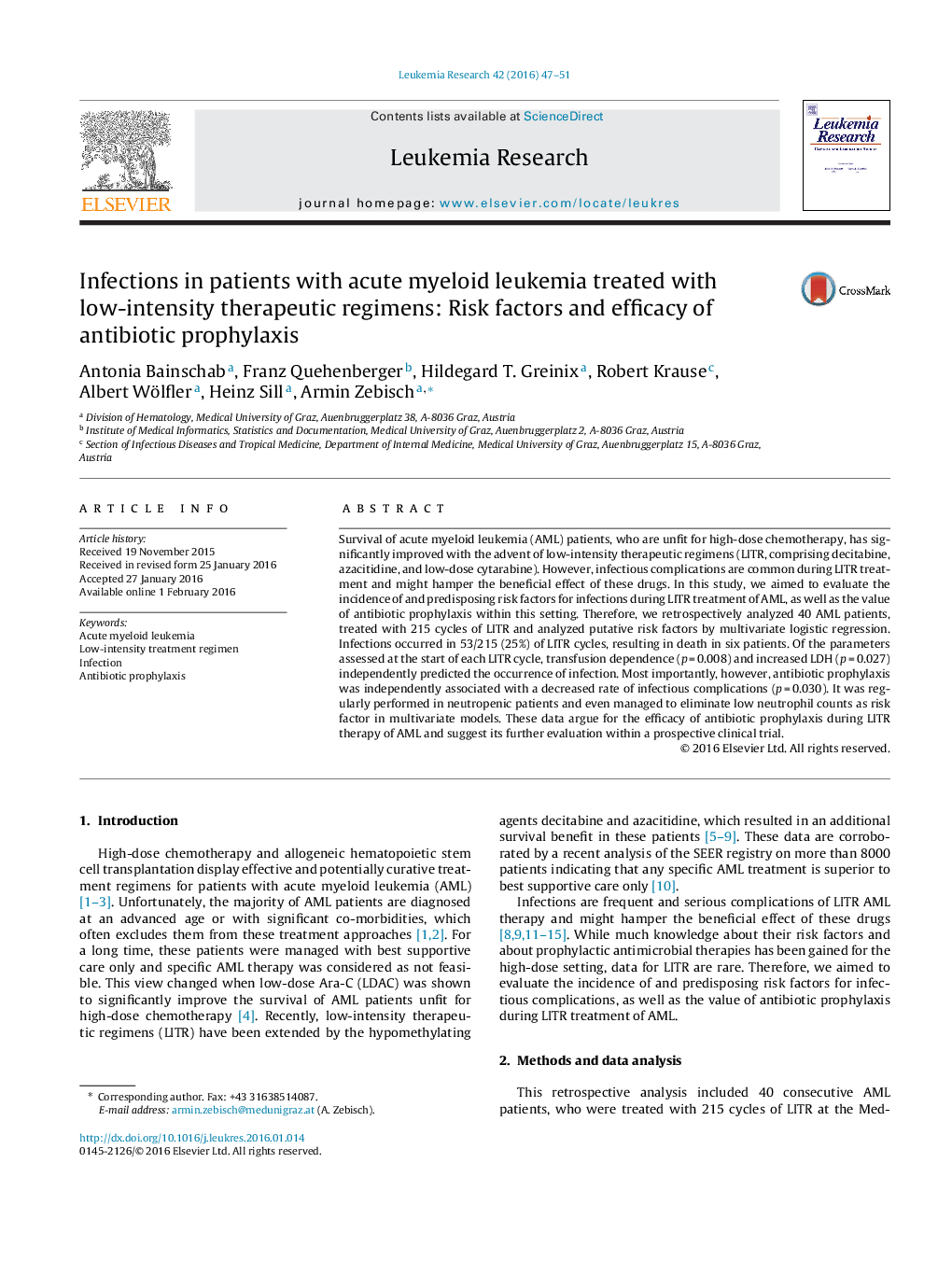| Article ID | Journal | Published Year | Pages | File Type |
|---|---|---|---|---|
| 2136350 | Leukemia Research | 2016 | 5 Pages |
•Low-intensity therapeutic regimens in acute myeloid leukemia are often complicated by infections.•Transfusion dependence and LDH are valuable markers to predict their occurrence.•Antibiotic prophylaxis is associated to a decreased incidence of infections within this setting.
Survival of acute myeloid leukemia (AML) patients, who are unfit for high-dose chemotherapy, has significantly improved with the advent of low-intensity therapeutic regimens (LITR, comprising decitabine, azacitidine, and low-dose cytarabine). However, infectious complications are common during LITR treatment and might hamper the beneficial effect of these drugs. In this study, we aimed to evaluate the incidence of and predisposing risk factors for infections during LITR treatment of AML, as well as the value of antibiotic prophylaxis within this setting. Therefore, we retrospectively analyzed 40 AML patients, treated with 215 cycles of LITR and analyzed putative risk factors by multivariate logistic regression. Infections occurred in 53/215 (25%) of LITR cycles, resulting in death in six patients. Of the parameters assessed at the start of each LITR cycle, transfusion dependence (p = 0.008) and increased LDH (p = 0.027) independently predicted the occurrence of infection. Most importantly, however, antibiotic prophylaxis was independently associated with a decreased rate of infectious complications (p = 0.030). It was regularly performed in neutropenic patients and even managed to eliminate low neutrophil counts as risk factor in multivariate models. These data argue for the efficacy of antibiotic prophylaxis during LITR therapy of AML and suggest its further evaluation within a prospective clinical trial.
